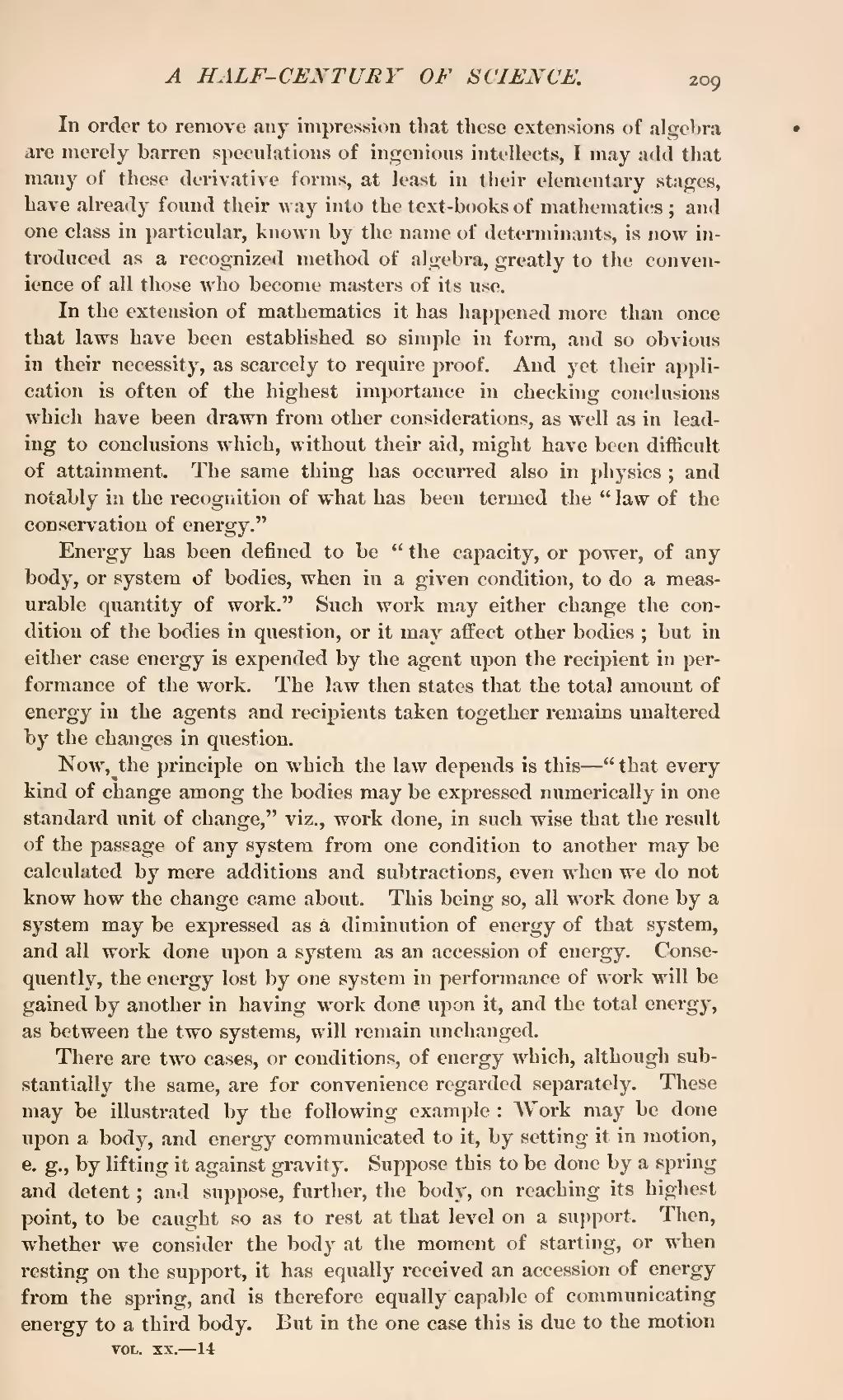In order to remove any impression that these extensions of algebra are merely barren speculations of ingenious intellects, I may add that many of these derivative forms, at least in their elementary stages, have already found their way into the text-books of mathematics; and one class in particular, known by the name of determinants, is now introduced as a recognized method of algebra, greatly to the convenience of all those who become masters of its use.
In the extension of mathematics it has happened more than once that laws have been established so simple in form, and so obvious in their necessity, as scarcely to require proof. And yet their application is often of the highest importance in checking conclusions which have been drawn from other considerations, as well as in leading to conclusions which, without their aid, might have been difficult of attainment. The same thing has occurred also in physics; and notably in the recognition of what has been termed the "law of the conservation of energy."
Energy has been defined to be "the capacity, or power, of any body, or system of bodies, when in a given condition, to do a measurable quantity of work." Such work may either change the condition of the bodies in question, or it may affect other bodies; but in either case energy is expended by the agent upon the recipient in performance of the work. The law then states that the total amount of energy in the agents and recipients taken together remains unaltered by the changes in question.
Now, the principle on which the law depends is this—"that every kind of change among the bodies may be expressed numerically in one standard unit of change," viz., work done, in such wise that the result of the passage of any system from one condition to another may be calculated by mere additions and subtractions, even when we do not know how the change came about. This being so, all work done by a system may be expressed as a diminution of energy of that system, and all work done upon a system as an accession of energy. Consequently, the energy lost by one system in performance of work will be gained by another in having work done upon it, and the total energy, as between the two systems, will remain unchanged.
There are two cases, or conditions, of energy which, although substantially the same, are for convenience regarded separately. These may be illustrated by the following example: Work may be done upon a body, and energy communicated to it, by setting it in motion, e. g., by lifting it against gravity. Suppose this to be done by a spring and detent; and suppose, further, the body, on reaching its highest point, to be caught so as to rest at that level on a support. Then, whether we consider the body at the moment of starting, or when resting on the support, it has equally received an accession of energy from the spring, and is therefore equally capable of communicating energy to a third body. But in the one case this is due to the motion

